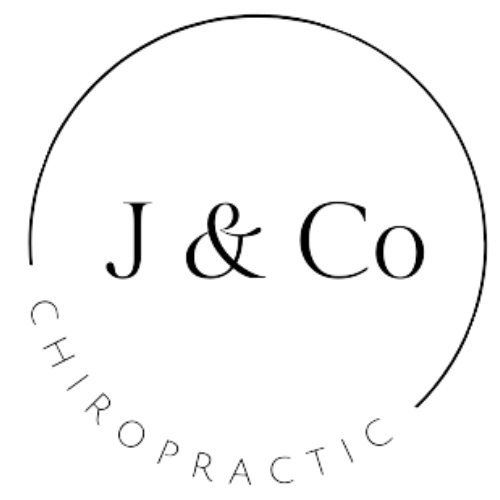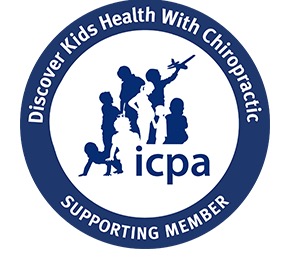Typically associated with restless crying for long hours, colic is a medical condition that affects infants during the first few months of their life. While the cause of colic is still undetermined, it is likely multifactorial. Some possible contributing factors include an immature digestive system, gastrointestinal discomfort, excessive gas, overstimulation, and sensitivity to certain formula milk or foods. The episodes of colic peak when a child is around six weeks old and significantly decline as soon as they turn 3 to 4 months old.
Even though it doesn’t sound dangerous, if not treated, colic can take a toll on your child’s health and development. Pediatric chiropractic care can help soothe crying babies and relieve symptoms of digestive issues like colic. Keep reading to learn more about chiropractic care for digestive issues.
Symptoms of Digestive Issues in Newborn Babies
A child’s ability to eat and digest food can affect their growth and development. Problems in the nervous system or digestive tract can make it difficult for the baby to digest food, leading to serious health complications like malnutrition, gastrointestinal distress, weight loss, development of food intolerances, and even dehydration.
Don’t know if your child is suffering from digestive issues? Look for the following symptoms:
- Vomiting: While dribbling and spitting up milk is common in newborns, forceful vomiting immediately after feeding indicates an underlying gastrointestinal issue.
- Diarrhea: Watery bowel movements in newborns can lead to severe dehydration. Therefore, it should not be taken lightly and must be treated immediately.
- Constipation: Even though hard stool or constipation is common among newborns if your baby has turned one and is still finding it painful to pass stool, immediately take them to a child specialist.
- Gastroesophageal Reflux (GER): Backing stomach content into the esophagus causes reflux. In the majority of cases, the reflux automatically disappears once your child turns one year old. However, if your little one has poor feeding habits, frequent hiccups, breathing problems, or congestion, take them to a pediatrician.
- Excessive Crying: Children with colic have frequent episodes of inconsolable and intense crying, usually occurring around the same time every day. The crying can last for several hours and may be difficult to soothe.
- Abdominal Discomfort: Stomach cramps, pain, and discomfort are among the most prominent symptoms of digestive issues. These symptoms can manifest as episodes of your baby pulling their legs towards their chest, arching their back, and clenching their fists.
- Excessive Gas and Bloating: If your child is passing gas frequently, they might be suffering from gastrointestinal issues.
- Disrupted Sleep Patterns: Children with digestive issues or colic might have difficulty falling asleep.
Chiropractic Care for Colic and Other Digestive Issues
Chiropractic care focuses on removing the subluxations and improving the functioning of the nervous system. Connected with the brain, the central nervous system is responsible for sending signals to the organs and body parts, telling them how and when to react and move. For example, the nerves in the lumbar and thoracic regions of the spinal cord play an integral role in setting the rate at which the body digests food. Thus, interference or subluxations in the nerves can severely affect the pace and functionality at which the organs digest food. Listed below are different types of approaches that chiropractors use to treat digestive issues in babies:
1. Spinal Adjustments
Chiropractors might perform gentle spinal manipulations or adjustments to correct subluxations or misalignments in the baby’s spine. Restoring proper spinal alignment will improve nerve functioning and digestion in babies, relieving colic symptoms. A clinical trial was conducted in 2012, in which 94% of the babies who received chiropractic care experienced improved colic symptoms.
2. Soft Tissue Technique
During a soft tissue therapy session, the chiropractor will use gentle massages to release tension and subluxations in the baby’s muscles and improve their overall body function. Soft tissue technique can help reduce discomfort and aid digestion, allowing your baby to drink milk without fearing throwing up.
3. Craniosacral Therapy
Craniosacral therapy is a unique technique chiropractors use to treat digestive issues, especially colic. The technique involves gentle manipulation of the child’s skull and sacrum to release any restriction or tension in the craniosacral system, making them feel relaxed. Craniosacral therapy restores the balance between the brain and the nervous system and improves communication, which ultimately aids digestion.
4. Nutritional Advice
A chiropractor will also provide you with guidance on nutrition and feeding techniques to improve your child’s digestive health. They might also offer recommendations for formula choices, breastfeeding techniques, and when and how to introduce solid foods, in consideration of your child’s medical history, food allergies, and potential sensitivities.
What Can You Do?
Unfortunately, due to the scheduled nature of chiropractic care sessions, providing continuous care throughout the day isn’t feasible. Here are some tips to ease your child’s symptoms while they are at home:
- Make sure your child is wearing a clean diaper.
- Feed your baby on time.
- Walk or rock with your baby.
- Offer your child a pacifier.
- Talk or sing to your baby.
- Give your child a warm bath.
- Rub or pat your child’s back after feeding them.
- Place your baby in your lap and rub their back.
Visit J & Co Chiropractic Today!
The highly qualified and experienced team of chiropractors at J & Co Chiropractic can help with your child’s digestive issues, including colic, according to their needs. Dr. Jessica Cho will try to connect with your little one so that they feel comfortable throughout the treatment. J & Co Chiropractic provides services in Arlington Heights, Buffalo Grove, Palatine, Prospect Heights, and Mount Prospect. Give us a call to schedule an appointment right away.


